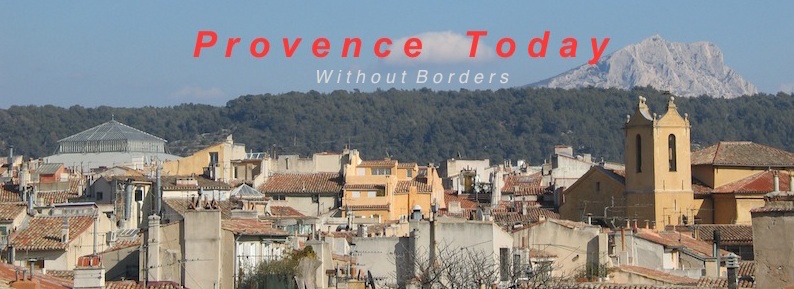FRENCH ELECTIONS
It's over, and the winner of the first round of the French
presidential election is centrist Emmanuel Macron of the movement En Marche! who will face far-right
candidate Marine Le Pen of the Front
National (FN) in the runoff on May 7. With 24.01 percent and 21.30 percent
of the vote, respectively, they eliminated from the race conservative and early frontrunner François
Fillon and hard-left candidate Jean-Luc Mélenchon who obtained close to 20
percent each. Predictions are that Macron will win the second round and become
the next president of France, but if the abstention rate is high (May 7 is in the
middle of a long weekend) and if Mélenchon's disappointed followers vote for Le
Pen because she, like Mélenchon, wants to leave the Euro and the European
Union, nothing is sure.
 |
| Jean-Luc Mélenchon |
Five years of President Hollande's failed government have
left the socialist party in tatters (its presidential candidate Benoît Hamon
got no more than 6.36 percent of the vote), and the refusal of a damaged
François Fillon to withdraw from the race in favor of fellow Republican Alain
Juppé has been blamed for the conservative LR party's loss. Voters'
disenchantment with the two main parties was surely one of the reasons for maverick Mélenchon's
strong showing.
 |
| Marine Le Pen |
She may be getting some help from Russia (she met Putin in
Moscow last month) according to reports that Russian hackers have targeted
Emmanuel Macron's computer network. Global cybersecurity firm Trend Micro
identified the group as the same ones who penetrated the Democratic National
Convention's network last year and says they may be linked to the GRU, an elite
Russian military intelligence unit. Putin does not want a strong European Union, and
neither does Le Pen. French authorities have been alerted, and Trend Micro will
issue a detailed report this week.
 |
| Macron and wife Brigitte |
This campaign is not over, but I cannot help dreaming
already of a dynamic Justin Trudeau or John F. Kennedy at the helm in France.
REFUGEE CAMP BURNED
 |
| Le Grande-Synthe camp on fire |
According to local authorities, a fight had broken out
between Kurdish and Afghan migrants over accommodations in the camp, with
Afghans complaining that they were housed in the collective kitchens while the
Kurds slept in wooden sheds. This camp of wooden sheds had been built by
Doctors without Borders to house 800 people, but at the time of the fire it
held 1500. The original occupants were mostly Kurdish, but when French
authorities dismantled the infamous Calais Jungle camp in October 2016, it
re-settled hundreds of Afghans in the Grande-Synthe camp which lacked
sufficient wooden sheds for all.
 |
| Le Grande-Synthe before |
Most of the people at Grande-Synthe want to go to England,
including minors who have family there, and are awaiting visas for the UK or
asylum papers for France. Others are still trying to get to England illegally
and refuse to leave the area for camps further south. Many of those who have
disappeared after the fire are thought to be hiding out between Dunkirk and
Calais for further attempts to cross over to the UK.
As a rule, it is government policy to settle families with
small children first and to house unattached men in temporary camps while their
visa or asylum applications are being handled. In the meantime, these men are
not allowed to work, but with the help of volunteers and charitable associations they
are given language classes and usually a place of worship. Nevertheless, the
longer they are held in these camps, the more discouraged they become and the
easier it is for a minor incident to spark violence. It is to be remembered
that these people ran for their lives and that they paid a terrible price just
to find safety before returning home when war ends or being allowed to work and
build a new life without handouts. It is a matter of survival and life with
some dignity for the migrants, and a moral and humanitarian issue for the host
countries where, more often than not, especially in northern Europe, the
welcome has been lukewarm at best.
TERRORIST ATTACK IN PARIS
Sadly, the refugee crisis has been displaced by French
elections, shifting tensions in international relations, and continuing
terrorist attacks around the world, including in Paris where a policeman was
killed last week on the Champs Elysées, and two other police officers and one
tourist were wounded. The assailant was shot dead by police. The attack was
soon claimed by the Islamic State, although the gunman, identified as
39-year-old French national Karim Cheurfi, who had a long criminal record and
spent 15 years in jail for attempted murder of a police officer, was not
known to be radicalized. At his death he carried a note in his pocket that
defended ISIS, and the addresses of four police stations in Paris as well as a
Koran were found in his car. French authorities are treating this as an Islamic
terrorist attack and are continuing their search for potential accomplices. No rest for the weary French security forces who have been working under a State of Emergency for too long. And no national security as long as home-grown Islamist extremists pursue their misguided mission against "infidels." Let's hope that the next president will find a workable solution to this problem and, of course, let's hope it will be Manuel Macron!




